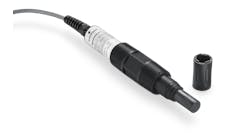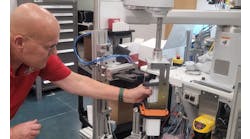Faith has limitations as a strategy for process control
My father seemed to think his car had an attitude. Dad flew B-24 bombers in World War II, so he had some knowledge of practical physics and could operate a machine, but he wasn’t an engineer. When he returned after the war, he finished college on the GI bill with a degree in airport management. He worked as a homebuilding contractor and a small aircraft insurance claim adjuster, and eventually as an independent insurance agent.
Along the way, he acquired, drove and tried to maintain a small collection of Studebaker cars (though we have no personal relation to the global company once headquartered in South Bend, Indiana).
One is a 1953 Starliner coupe he bought new and extensively modified over many years, including transplanting a later V-8 drivetrain to replace its little six. This car he affectionally named “Mule” because, he said, it would only go when it wanted to. He went so far as to purchase an M, U, and two Es from the local Mercury dealer, cut one of the Es into an L, and mounted the car’s name on the right front corner of the hood.
The Starliner is still in the family, bought back after 30 years in storage in a warehouse, and is now undergoing restoration by my brother in Oregon. I don't think the MULE emblem is part of the plan.
Dad’s relationship to machinery had a certain degree of antagonism. When frustrated, he wasn’t likely to pick up a big hammer—more likely to just swear a blue streak—but he had no formal training and pre-dated Zen and the Art of Motorcycle Maintenance, so his progress toward enlightenment and logical troubleshooting was slow. I think he preferred woodworking, and he was very good at that.
All my life, I’ve seen people try to fix things without knowing how they work. It’s common in process control— Béla Lipták copies me many “Ask the experts” inquiries, where it’s clear the question leaps to some detail, while skipping over the principles that, if understood, would make the answer obvious.
When things get complicated, some people act as if the engineering was unknowable—a black box with a personality and whims that they might learn how to mollify, or maybe pray to, to get the results they need. History is full of examples of people invoking the whims of gods as reasons why things go well or poorly, why the sun or moon disappears (an eclipse), why someone sickens or regains their health, why a loved one is taken in a tragic accident or terrible crime.
I take no issue with anyone needing an explanation for the unknowable, or a way to accept and survive tragedy. “The Lord works in mysterious ways” is a fine and practical rationalization for dealing with things we find ourselves unable to understand and powerless to prevent or undo.
But we don’t accept it as a rationalization for criminals or for ignorant engineers. When someone commits a crime or is negligent or incompetent on the job, we don’t shrug it off, smile and say, “No worries, the Lord works in mysterious ways.” We don’t imbue unacceptable behavior with divine influence and let it go.
And with few exceptions, we don’t believe our own decisions and behavior are inherently inspired by divine grace. As I write this, trust me, I worry that it’s bad. I worry that you’ll hate it. I worry that it’s wrong to put this in an editorial in Control. I don’t assume that, just because I’m doing it, it must be right.
But I have known a few fellow engineers, managers and yes, politicians who seem very certain of the correctness of their actions, their ability to do no wrong, their supreme self-confidence despite limited experience and unfortunate ignorance.
One of them was governor of our fine state of Indiana, Mike Pence. Pence sincerely believes everything he does is part of God’s plan. For that reason alone, I wouldn’t want him selecting a control valve or even fixing my car, much less in charge of my country.
Latest from Asset Management

Leaders relevant to this article:




